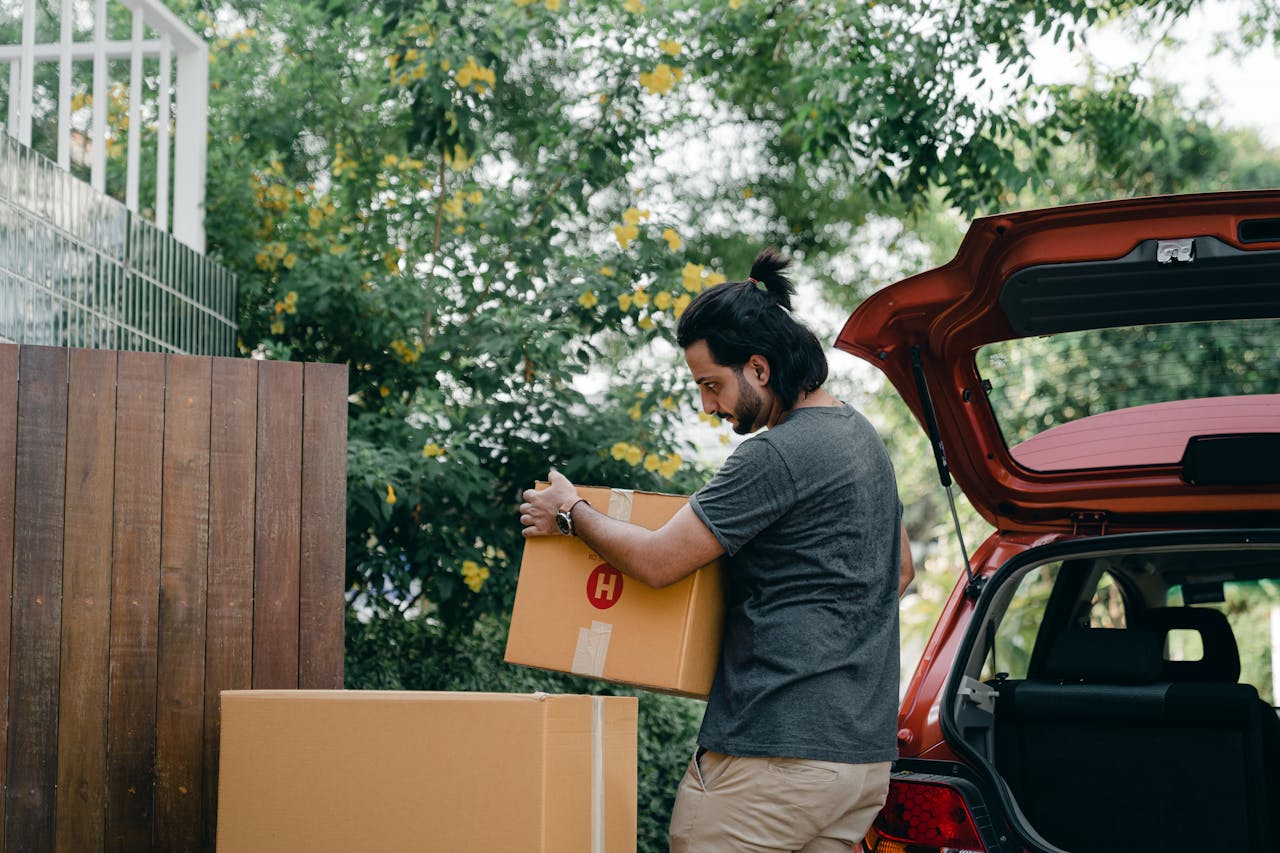
In the Name of Allah—the Most Compassionate, Most Merciful.
In the life of a Muslim, stepping out of the comfort and safety of one’s home is a moment that intertwines with faith, invoking Allah’s protection through recitation of a dua.
This practice, deeply ingrained in Islamic tradition, serves not just as a protective prayer but as a reaffirmation of a believer’s trust in Allah.
The dua, when leaving a house, encapsulates the essence of this spiritual journey, blending the physical act of leaving with the metaphysical reliance on divine guidance.
Dua When Leaving a House

As believers prepare to leave their homes, reciting the Dua When Leaving a House becomes an act of faith, Allah’s protection, and Allah Tawakkul (placing trust in Allah).
This small dua is not merely words; it is a prayer for protection, guidance, and blessings, a beacon that lights the path ahead.
Arabic
English Transliteration
“Bismillahi tawakkaltu ‘ala Allah, la hawla wa la quwwata illa billah.”
English Translation
Reciting this dua before leaving embodies the believer’s Servant Allah relationship, seeking protection and forgiveness and being guided and defended in the ventures outside the house.
Dua for Leaving the House Printable
Accessibility to this dua is facilitated through a printable Dua for leaving the house, enabling believers to always keep the dua close.
This home dua can be a constant reminder of Allah’s omnipresence and the comfort that comes with being under His watchful eye, regardless of location.
What is the Sunnah and Etiquettes of Leaving the House?
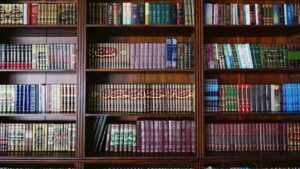
Following the Sunnah—the practices and traditions of the Prophet Muhammad (PBUH)—enhances the significance of the dua when leaving home. The etiquettes include:
- Reciting the dua with intention and humility.
- Stepping out with the right foot first, symbolising a positive beginning.
- Saying, “In the name of Allah, I place my trust,” affirming one’s reliance on divine will
Benefits of Reciting a Dua Before You Leave Your Home
The benefits of this practice are manifold, impacting the spiritual and material aspects of life:
Protection
Reciting a dua before leaving home for protection acts as a spiritual shield, invoking divine safeguarding from unseen harms and physical dangers. This practice embeds a sense of security and peace, reinforcing faith in divine oversight.
By entrusting one’s safety to a higher power, individuals carry a tranquil mindset, reducing anxiety over potential risks. This protective dua not only covers physical well-being but also guards against negative influences, ensuring a harmonious journey.
Guidance
Seeking guidance through dua before stepping out signifies a request for divine navigation through life’s complexities. This invocation helps in making wise decisions and distinguishing between beneficial and harmful paths.
It’s a conscious acknowledgement of human limitations and the need for divine wisdom in directing one’s steps. This guidance is essential for navigating through life’s trials, ensuring that one remains on a path that aligns with spiritual growth and personal integrity.
Blessings
Finally, invoking blessings through dua before leaving home opens the heart to receive divine grace and favour. This act of faith attracts positive energy, facilitating a day filled with goodness and success.
It’s a spiritual affirmation that sets a positive tone, inviting prosperity, health, and an abundance of happiness into one’s life. By starting the journey with a blessing, people are more likely to encounter beneficial opportunities and experience a sense of fulfilment in their daily endeavours.
Hadith on Dua When Leaving Home
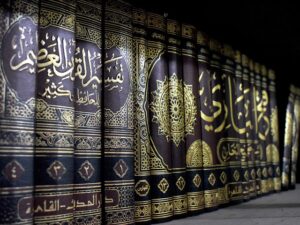
The hadith regarding the dua for protection when leaving home is a profound piece of Islamic teaching that emphasises reliance on Allah for complete protection, guidance, and strength. This hadith is reported by Anas ibn Malik, a close companion of the Prophet Muhammad (PBUH).
So, Anas ibn Malik reported that the Prophet Muhammad (PBUH) said:
This hadith, narrated by Anas ibn Malik, emphasises the importance of starting one’s journey with the name of Allah, highlighting the act of placing one’s trust in Allah and acknowledging His supreme power and control over all affairs.
The recitation of this dua is basically a form of Dhikr (remembrance of Allah) that brings about divine protection and guidance. It serves as a shield against the plots of Satan, ensuring the person reciting is safeguarded and led down a path of righteousness.
The psychological and spiritual benefits of this practice are immense. Psychologically, it instils a sense of security and tranquillity in the believer, reducing anxiety and stress associated with the uncertainties of leaving one’s safe space.
Moreover, spiritually, it enhances the believer’s Tawakkul (reliance on Allah), strengthening their faith and consciousness of Allah in their daily activities.
Dua When Entering and Leaving a House
The practice of reciting dua when entering or leaving a house symbolises the ongoing conversation with Allah, seeking His protection and blessing upon every return and departure.
This dua is a reminder of the sanctity of the home as a place of peace, safety, and spiritual rejuvenation.
Arabic
English Transliteration
“Allahumma inni as’aluka khairal mawliji wa khairal makhraji, bismillahi walajna, wa bismillahi kharajna wa ‘ala Allahi rabbina tawakkalna.”
English Translation
“O Allah, I ask Thee for good both when entering and when going out; in the name of Allah we have entered, and in God our Lord do we trust.”
These prayers underscore the concept of the home as a blessed space, with the recitation serving as a bridge connecting the believer’s movements to Allah’s encompassing protection and guidance.
Dua for Leaving Masjid
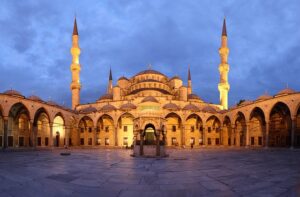
Leaving the masjid (mosque) after prayers or contemplation is another significant transition, marked by a specific dua that acknowledges Allah’s hospitality and seeks His grace for the world outside.
Arabic
English Transliteration
“Allahumma inni as’aluka min fadlika.”
English Translation
This dua reflects the believer’s gratitude for the opportunity to worship in a communal setting and the hope that the peace found within the masjid extends to the rest of their complicated lives.
Dua for Entering the Toilet and Leaving
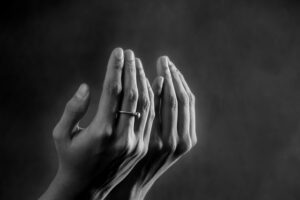
Islam teaches mindfulness and supplication even in the most private of moments. For instance, the dua, when entering and leaving the toilet, seeks Allah’s protection from harmful entities and expresses gratitude for the \ cleanliness that facilitates purity and health in every private action.
Arabic
English Transliteration
“Bismillah, Allahumma innee a’oozu bika minal khubthi wal khaba’ith”
“Ghufranaka, Alhamdulillahil-ladhi adhhaba ‘anni al-adha wa ‘afani”
English Translation
Summary – Dua When Leaving Home
The dua recited when leaving home is part of a broader spiritual framework within Islam that emphasises constant remembrance, gratitude, and reliance on Allah.
These duas serve not only as requests for protection, guidance, and blessings but also as affirmations of the believer’s faith and trust in Allah’s plan. Whether stepping out of the home, entering or leaving a masjid, or engaging in daily routines, these prayers encapsulate the essence of a life lived in harmony with Allah’s will.
By embedding these practices into daily lives, Muslims reinforce a spiritual connection with Allah, ensuring that every action, no matter how mundane, is imbued with purpose and mindfulness.
It’s a journey of faith that begins and ends with Allah’s remembrance, guiding believers through the complexities of the world while keeping their hearts anchored in divine protection and wisdom
Related Articles




